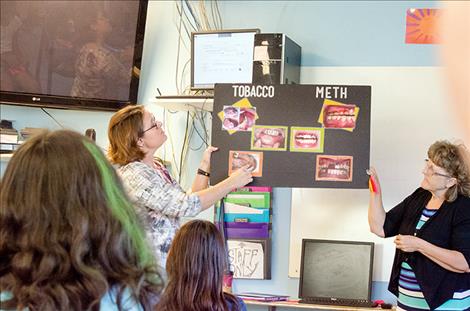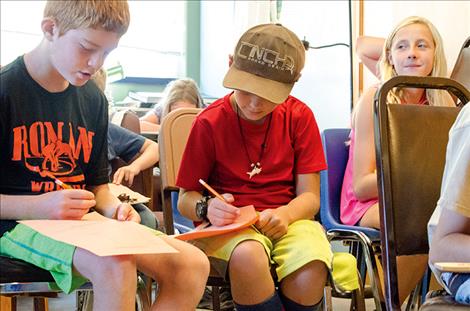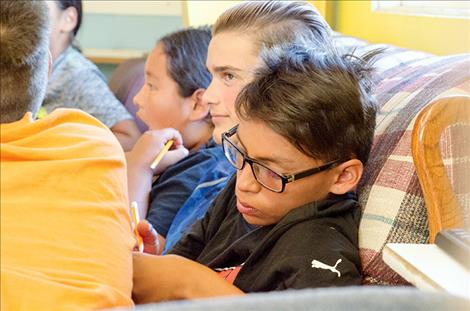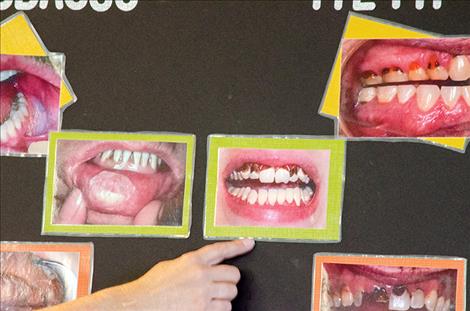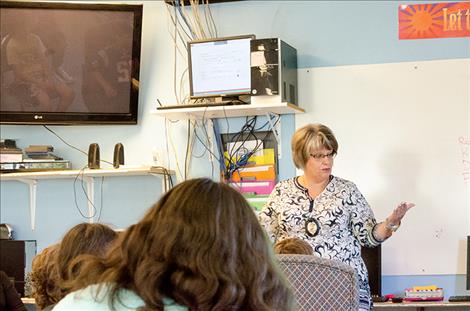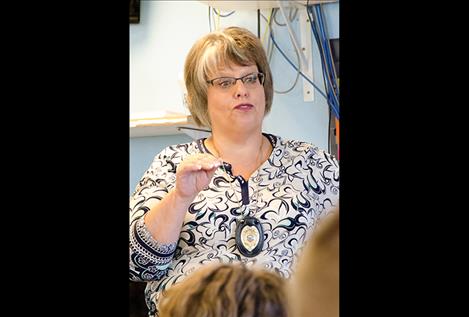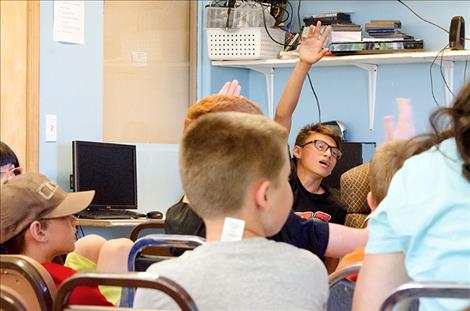Local Boys and Girls Club pilot for national meth prevention project
Hey savvy news reader! Thanks for choosing local.
You are now reading
1 of 3 free articles.
RONAN – During a nine-day project, the community came together to make an impression on kids concerning the dangers of using methamphetamines.
The event was held at the Boys and Girls Club of the Flathead Reservation and Lake County in Ronan as part of a national pilot project to hopefully reach kids at an earlier age and prevent addiction.
“The sad fact is that younger kids are being exposed to meth,” said Amy Vaughan, project coordinator with the Boys and Girls Club.
U.S. Department of Interior’s Principal Deputy Assistant Secretary of Indian Affairs Lawrence Roberts announced in January a collaboration between federal departments to launch a program called “Culture and Meth Don’t Mix.”
“The program’s goal is to strengthen meth prevention in tribal communities through combined efforts,” Roberts states.
The project was then presented to the Native Services Unit of the Boys and Girls Clubs of America. The Ronan club is being used to launch the program. Officials at the Ronan club took the project and developed it to fit the community.
“We service native and non-native kids, so for us, it was about combining culture and community,” Vaughan said.
The project involved inviting community leaders to talk to kids about meth. Vaughan shared information with the kids before and after the speakers arrived at the club during the week. She explained to the kids that a drug dealer or even a supposed friend won’t tell them about the bad side of meth.
“They will say that this will give you energy, and it’s going to make you feel good. They won’t tell you that it’s going to screw your life up,” she said.
On Tuesday, Aug. 15, Lake County Chief Juvenile Probation Officer Barbara Monaco was at the club to talk to the kids. She told them to call her if they need any help, but she usually deals with kids that have gone through the judicial system, so she hopes she won’t be seeing them on a regular basis.
She told the kids that after working in the system for many years she has seen how meth impacts young people. “When you use drugs, it’s not good for your body,” she said. She talked about a kid around the age of 16 that told her he didn’t use drugs all the time: “I’m just doing it on the weekend,” he said. As it turns out, the kid was sent to a chemical treatment center where the doctors determined that he had permanent damage to his organs from his weekend meth use.
She encouraged the kids to get an adult if they are offered drugs, which can be done quietly if needed.
“When someone on the playground says ‘you want to do drugs’ tell a teacher or a principal,” she said. “Get them some help. A lot of times they want help. And you don’t want them to go to the next kid and offer them drugs.”
One kid raised his hand and asked: “What if it’s your parents that are doing the drugs?” Monaco looked at the child for a moment, seeming to consider the answer, and told him to find someone he can trust including the staff at the Boys and Girls Club, and if needed, call the police.
She explained that drugs change a person and take away their ability to make good choices.
“Addicts describe using meth like a jolt. It’s very quick and very sudden,” she said. “They tell me they want it again and again and nothing else matters.”
She said that it’s important to tell a trusted adult about any drug use that they see.
“Often people that are using want help,” she said. “Those kids that are asking you to do drugs, they need help.”
Several other speakers came into the club during the week including: Confederated Salish and Kootenai Tribes Drug Task Force members and Lake County Drug Task Force members; Ronan Police Chief Ken Weaver; Montana Highway Patrol Trooper Charles Burton; CSKT Police Chief Craig Couture; CSKT Communications Director Rob McDonald; CSKT Council Member Carole Langford; Salish Kootenai College Vice President of Student Affairs Dan Durglo; S&K Technologies Representative Peter White; CSKT Cultural Educator Allan Pierre; The People’s Center educators Dana Hewankorn and staff; CSKT Housing Authority Executive Director Jason Adams; Traditional Dance Educator Gail Grant; Behavioral Health Specialist Gina Dalrymple; and CKST Tribal Health Representative Brian Big Sam.
Club member Bayley Miller, 9, said she learned a lot about meth from the speakers. She took a trip to The People’s Center in Pablo with the club to make dream catchers and talk about drug prevention. She also met a police dog another speaker brought in and learned how they find drugs.
“We talked a lot about drugs and how they are really bad for our community, and they are bad for our tribe,” she said.
The kids also learned about a thing called “meth mouth.” They were shown photos of rotting teeth and told that the chemicals in meth will cause a person’s teeth to decay and turn black. “That is gross,” several kids said.
The club members spent some time discussing meth as a group. One kid asked: “What do you think would happen if the whole world used meth.” The answer came instantly: “It would be an apocalypse.”
Several kids announced that they weren’t going to ever try drugs. “Ya, I don’t want my teeth to rot out,” another kid said.
The group moved on to less serious matters during the morning including what they wanted to do for the next field trip at the end of the week, maybe football or something else involving running around and having fun.















